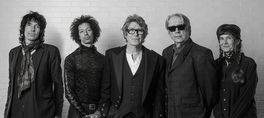Join us as we revisit Gattaca—the dystopian vision of a vastly unequal future that continues to shape our discussions of human genetic technologies 20 years after its release.
How can Gattaca help us answer the questions we face today, as discrimination against people with disabilities continues at the same time that genetic modification of future generations becomes technically possible?
Set in the not-too-distant future, Gattaca presents a dystopian society that uses technology to enforce a new form of inequality. Almost every child is born through assisted reproduction; embryos are screened for perceived deficiencies and only those with what are thought to be desirable traits – highly intelligent, attractive, and able-bodied – are implanted for gestation and birth. Those born without these perceived genetic advantages have little opportunity or support. Instead of becoming rocket scientists, they clean the floors.
Gattaca raises important conversations about the nature of health and disability, and whether diversity and inclusion are meaningful values in a society where genetic technologies determine opportunity and resources. It also suggests uncomfortable questions – how close is our present reality coming to Gattaca’s fictional dystopia?
A moderated discussion with disability scholars and activists following the film screening will include: Alice Wong, Sara Acevedo, Dominika Bernardska, Lawrence Carter-Long, Catherine Kudlick, and Marcy Darnovsky. The panel will explore the importance of the movie in light of emerging technologies that make what was considered science fiction at the time of GATTACA’s release in 1997, simply science today.
This event is co-presented by Superfest International Disability Film Festival, The Center for Genetics and Society, The HAAS Institute for a Fair and Inclusive Society at UC Berkeley, and San Francisco Public Library Access Services.
ACCESSIBILITY INFORMATION
The Main Library is wheelchair accessible. To request ASL interpreting or CART accommodations, contact [email protected] or phone 415 625 9082 or 415 557 4434. Phone the Library for the Blind and Print Disabled at 415 557 4253 for other accommodations. Requesting accommodations at least 72 hours in advance will help to ensure availability. Live audio description will be provided via headsets.
show less
How can Gattaca help us answer the questions we face today, as discrimination against people with disabilities continues at the same time that genetic modification of future generations becomes technically possible?
Set in the not-too-distant future, Gattaca presents a dystopian society that uses technology to enforce a new form of inequality. Almost every child is born through assisted reproduction; embryos are screened for perceived deficiencies and only those with what are thought to be desirable traits – highly intelligent, attractive, and able-bodied – are implanted for gestation and birth. Those born without these perceived genetic advantages have little opportunity or support. Instead of becoming rocket scientists, they clean the floors.
Gattaca raises important conversations about the nature of health and disability, and whether diversity and inclusion are meaningful values in a society where genetic technologies determine opportunity and resources. It also suggests uncomfortable questions – how close is our present reality coming to Gattaca’s fictional dystopia?
A moderated discussion with disability scholars and activists following the film screening will include: Alice Wong, Sara Acevedo, Dominika Bernardska, Lawrence Carter-Long, Catherine Kudlick, and Marcy Darnovsky. The panel will explore the importance of the movie in light of emerging technologies that make what was considered science fiction at the time of GATTACA’s release in 1997, simply science today.
This event is co-presented by Superfest International Disability Film Festival, The Center for Genetics and Society, The HAAS Institute for a Fair and Inclusive Society at UC Berkeley, and San Francisco Public Library Access Services.
ACCESSIBILITY INFORMATION
The Main Library is wheelchair accessible. To request ASL interpreting or CART accommodations, contact [email protected] or phone 415 625 9082 or 415 557 4434. Phone the Library for the Blind and Print Disabled at 415 557 4253 for other accommodations. Requesting accommodations at least 72 hours in advance will help to ensure availability. Live audio description will be provided via headsets.
Join us as we revisit Gattaca—the dystopian vision of a vastly unequal future that continues to shape our discussions of human genetic technologies 20 years after its release.
How can Gattaca help us answer the questions we face today, as discrimination against people with disabilities continues at the same time that genetic modification of future generations becomes technically possible?
Set in the not-too-distant future, Gattaca presents a dystopian society that uses technology to enforce a new form of inequality. Almost every child is born through assisted reproduction; embryos are screened for perceived deficiencies and only those with what are thought to be desirable traits – highly intelligent, attractive, and able-bodied – are implanted for gestation and birth. Those born without these perceived genetic advantages have little opportunity or support. Instead of becoming rocket scientists, they clean the floors.
Gattaca raises important conversations about the nature of health and disability, and whether diversity and inclusion are meaningful values in a society where genetic technologies determine opportunity and resources. It also suggests uncomfortable questions – how close is our present reality coming to Gattaca’s fictional dystopia?
A moderated discussion with disability scholars and activists following the film screening will include: Alice Wong, Sara Acevedo, Dominika Bernardska, Lawrence Carter-Long, Catherine Kudlick, and Marcy Darnovsky. The panel will explore the importance of the movie in light of emerging technologies that make what was considered science fiction at the time of GATTACA’s release in 1997, simply science today.
This event is co-presented by Superfest International Disability Film Festival, The Center for Genetics and Society, The HAAS Institute for a Fair and Inclusive Society at UC Berkeley, and San Francisco Public Library Access Services.
ACCESSIBILITY INFORMATION
The Main Library is wheelchair accessible. To request ASL interpreting or CART accommodations, contact [email protected] or phone 415 625 9082 or 415 557 4434. Phone the Library for the Blind and Print Disabled at 415 557 4253 for other accommodations. Requesting accommodations at least 72 hours in advance will help to ensure availability. Live audio description will be provided via headsets.
read more
How can Gattaca help us answer the questions we face today, as discrimination against people with disabilities continues at the same time that genetic modification of future generations becomes technically possible?
Set in the not-too-distant future, Gattaca presents a dystopian society that uses technology to enforce a new form of inequality. Almost every child is born through assisted reproduction; embryos are screened for perceived deficiencies and only those with what are thought to be desirable traits – highly intelligent, attractive, and able-bodied – are implanted for gestation and birth. Those born without these perceived genetic advantages have little opportunity or support. Instead of becoming rocket scientists, they clean the floors.
Gattaca raises important conversations about the nature of health and disability, and whether diversity and inclusion are meaningful values in a society where genetic technologies determine opportunity and resources. It also suggests uncomfortable questions – how close is our present reality coming to Gattaca’s fictional dystopia?
A moderated discussion with disability scholars and activists following the film screening will include: Alice Wong, Sara Acevedo, Dominika Bernardska, Lawrence Carter-Long, Catherine Kudlick, and Marcy Darnovsky. The panel will explore the importance of the movie in light of emerging technologies that make what was considered science fiction at the time of GATTACA’s release in 1997, simply science today.
This event is co-presented by Superfest International Disability Film Festival, The Center for Genetics and Society, The HAAS Institute for a Fair and Inclusive Society at UC Berkeley, and San Francisco Public Library Access Services.
ACCESSIBILITY INFORMATION
The Main Library is wheelchair accessible. To request ASL interpreting or CART accommodations, contact [email protected] or phone 415 625 9082 or 415 557 4434. Phone the Library for the Blind and Print Disabled at 415 557 4253 for other accommodations. Requesting accommodations at least 72 hours in advance will help to ensure availability. Live audio description will be provided via headsets.
show less
Date/Times:
San Francisco Main Public Library
4 Upcoming Events
100 Larkin Street, San Francisco, CA 94102
The Best Events
Every Week in Your Inbox
From Our Sponsors
UPCOMING EVENTS
Great suggestion! We'll be in touch.
Event reviewed successfully.









